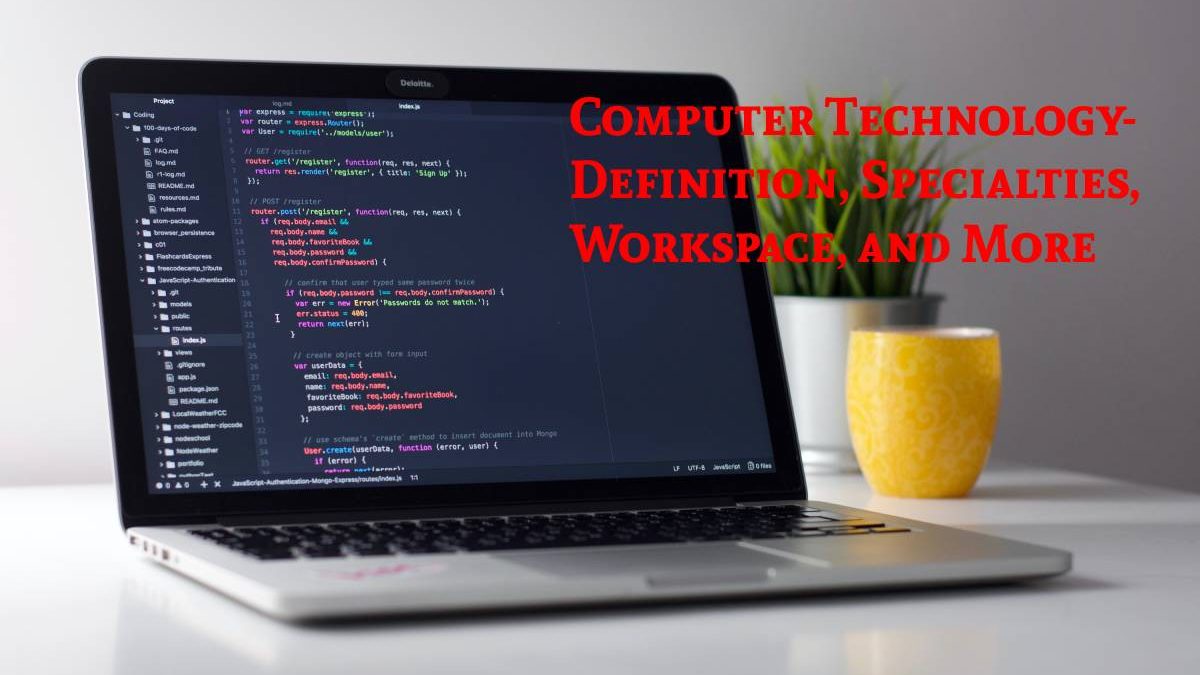Table of Contents
Definition
Computer Technology gives efficiency to the operation and use of computational resources for a better performance of the process. And production and service companies whenever, information Technology (IT), as defined by the Information Technology Association of America (ITAA), is the study, design, development, innovation, implementation, support, or management of computerized information systems, particularly software applications.
Specialties
Whenever, data network. Vocation, Skills, and Interests needed in the applicant for this career Interests More oriented to technology and its application, inclined towards practical and functional issues with patience to understand the mechanism of something and how it works Whenever ,want to improve and adapt tools for the optimal functioning of something. Frequently curious about the new electronic items offered by the market.
Interest in disassembling electronic devices to know their parts and the function that each one fulfills—taste for using and managing instruments such as consoles and measuring instruments. Curiosity to see the operation and use of the computer.
Skills
However, manual dexterity and adequate satisfactory motor skills Observation Capacity Visual acuity Capacity of concentration Aptitude for logical reasoning .Whenever, Intuition for detecting operating problems of an instrument or equipment. Ability to integrate work teams.
Vocation.
Whenever to build and operate computer or instrumental equipment that supports the production or services provided by companies. Or any specific dreams or desires that feel involved or oriented in this direction. Whenever, applicant’s Personality, practical Personality. However, creativity and initiative in the search for solutions to Specific problems. However, observant, detailed, organized, orderly, patient. Ease to work autonomously or integrated into interdisciplinary groups.
Workspace

Whenever, technological Laboratories, working with computers and managing software, instruments, and good tools.
Computer Architecture: How is a computer internally structured? How is its internal functioning and communication between its components in a language called assembler. Whenever, the machine’s language itself? CD-ROM, optical discs, floppy drives: Mass data storage and reading elements.
Configure: However, adapt a software, device, or hardware to conditions defined by the environment to allow connectivity, operation, or operation.
Electronics: Whenever, subject that studies electric circuits that contain *transistors.
Transistors: Whenever, an electronic device of semiconductor material that performs functions of amplifier, oscillator, switch or signal rectifier.
Hardware: However, physical components that make up the computer system.
Digital electronic Whenever, instruments: Electronic instruments that contain digital circuits.
Digital circuits work with two states in their voltage (such as a switch) and simulate highly complex mathematical logic constructions.
Interfaces: Interface: Communication system between the computer and man or between one computer and another.
Microprocessor: integrated circuit or chip that makes up the central processing unit of a computer.
Peripherals: Units or devices through which the computer communicates with the outside. It receives programs and data through them, presents the results obtained, stores information, and communicates with other computers.
Computer Programming: Computer Program
the set of orders to execute on various data. These commands are written in a computational language (language that the computer understands).
Scanner: A device that uses light-sensitive equipment to convert a photo or printed text into digital information that a computer can use.
Digital Systems: Subject studies circuits that work with two states in their voltage (such as a switch) and simulate highly complex mathematical logic constructions.
Operating Systems: Corresponds to the study of the set of programs dedicated to the computer’s internal functioning and interpretation of the orders given by the user.
Software: General term that designates the various types of computer programs.
Graphics Cards: Whenever, devices that contain integrated circuits or chips in charge of transforming the electrical signals of the computer into information that can be represented on a monitor or television that is understandable by the user.
Computer Technology: Whenever, study the function and technology on which each of the components that make up a computer and the devices that can be coupled to it (*peripherals) for the development of specific tasks are based.
Occupational field
Banks Financial entities, productive and services sector requires computer systems for communication, control, and automation of processes, such as Computer systems development companies’ influential companies service companies. Public services Consulting or marketing companies of hardware (computers) and software. Whenever, Public institutions trade in the general free exercise of the profession through their own software company approximate duration of the years of study 3 years.
Main subjects contemplated in the study plan.
Basic training subjects
Math Foundations
Applied mathematics
Electricity
Electricity Laboratory
Professional area
Computing Fundamentals
Electronics
Electronics Laboratory
Software Applications and Tools
Digital systems
Laboratory of *Digital Systems
Computer Technology
Operating systems
Computer programming
Microprocessors and Laboratory
Computer Architecture
Computer Networks (2 semesters)
Software Maintenance
Business management
Industrial Security
Maintenance of *Peripherals
Hardware Maintenance
Computer lab
Complementary training subjects
Technical English (2 semesters)
Professional profile
Professional who examines, detects, and corrects anomalies in the operation of computer systems and adapts to permanent technological changes. Whenever, considering technical and economic aspects. Join multidisciplinary work teams linked to the IT area or work autonomously, training users in solving operational problems. You can be promoted to head of technical service. Specific tasks or activities carried out in the profession operate computer equipment. Perform equipment fault diagnosis.
Carries out preventive and corrective maintenance tasks for computer systems and digital electronic instruments. Carry out the corresponding tests for their correct operation. Whenever, Prepares reports and budgets of the repairs carried out. It assembles parts and pieces of a computer by interconnecting its different physical components and external connections to power auxiliary and peripheral equipment.
Conclusion
However, knowledge allows us to design, produce, and export technologies. Whenever. that is, intellectual production in specific disciplinary areas in knowledge societies aims to satisfy the particular needs of each country. However in many cases, these advances also benefit other countries because they improve their scientific and technological development by importing technologies, methods, and tools.

